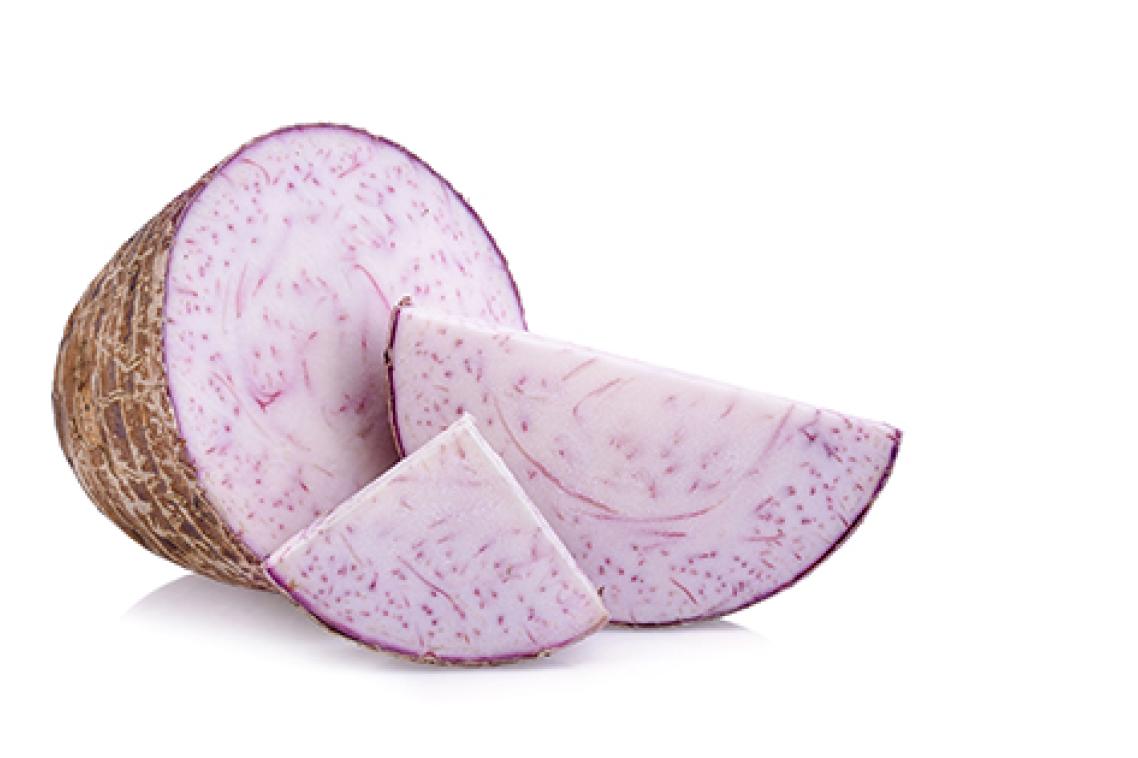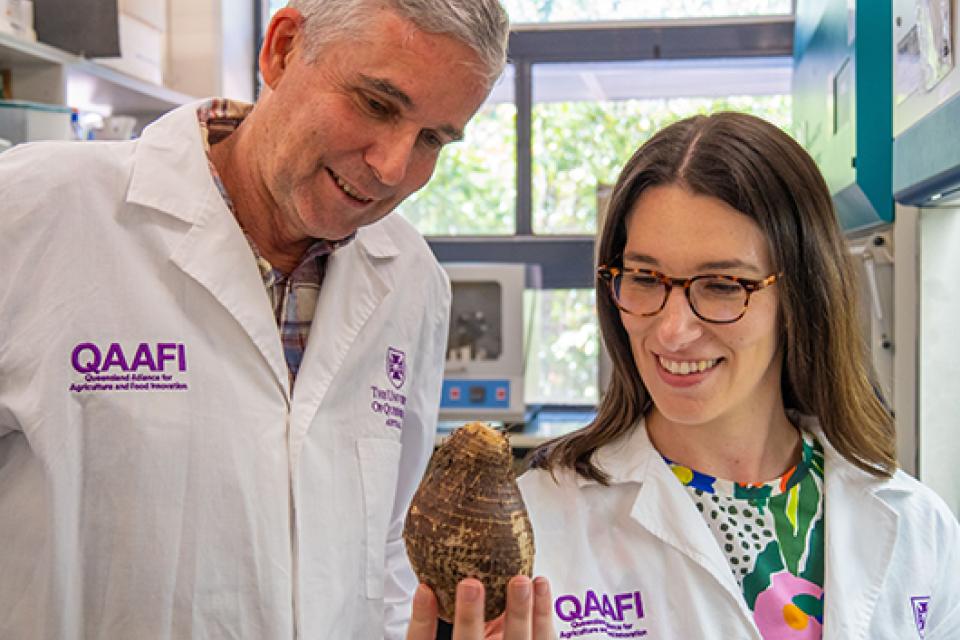DNA fingerprinting the ‘food of gods’

The tropical root vegetable taro, known as the ‘food of the gods’ in the Pacific, is under threat from rising sea levels but wild Australian plants being cultivated by The University of Queensland may help boost food security in the region.
UQ’s Dr Millicent Smith, a plant physiologist from the School of Agriculture and Food Sciences and Professor Ian Godwin from the Queensland Alliance for Agriculture and Food Innovation (QAAFI) are working with the Pacific’s chief scientific organisation, The Pacific Community (SPC), to find wild salt-tolerant taro varieties in Australia.
“The genetics of wild relatives of taro may hold the key to developing salt tolerant varieties and help protect taro’s unique nutritional and cultural place in the lives of Pacific Islanders,” Dr Smith said.
“Taro is one of the oldest cultivated plants in the world, but tidal inundations caused by rising sea levels, increased cyclone activity and contaminated groundwater can cause toxic levels of salt to affect taro production.”
Taro is a starchy vegetable with a sweet, mild nutty flavour, and is a staple in the diet of Pacific Islanders.
Dr Smith is part of a team looking at the physiological mechanisms and underlying genetics of native and naturalised Australian wild taro that grow in tidal habitats in and around southeast Queensland.
“We are developing a high-throughput, low cost system at UQ to screen taro plants for salinity tolerance,” Dr Smith said.
“We are using specialised pots to expose taro plants to elevated salinity through simulated tidal inundation.”

Professor Godwin said the aim was to get a DNA ‘fingerprint’ of each plant’s unique genetic sequence.
“This will allow us to evaluate taro for salinity tolerance traits,” he said.
The entire collection of more than 2000 taro samples held in the SPC Genetic Resource Centre in Fiji will also be DNA fingerprinted.
Professor Godwin was involved in the collection and characterisation of these samples 20 years ago.
“We are cataloguing DNA markers that breeders can use to rapidly transfer stress tolerance genetics into cultivated taro varieties,” he said.
The importance of identifying the genetic diversity of taro was highlighted in the 1990s when an outbreak of taro leaf blight wiped out Samoa’s taro industry and created a biosecurity risk for other Pacific Islands.
“The threat drove home the need for a gene bank of highly diverse taro material that included disease resistance genes,” Dr Smith said.
“With new breeding technologies available now we can draw on this precious genetic resource to develop taro better suited to a changing climate.”
Images and video available here.
Image above left: QAAFI Professor Ian Godwin and Dr Millicent Smith.
Media: Dr Millicent Smith, millicent.smith@uq.edu.au, +61 (0) 412617567; Professor Ian Godwin, i.godwin@uq.edu.au, +61 (0) 409 582 481; UQ Media, communications@uq.edu.au; +61 (0)429 056 139.
Related articles

New data reveals how Australia’s threatened reptiles and frogs are disappearing – and what we have to do

Long-sought environmental law reform is finally here. But will the compromise deal actually protect nature?
Media contact
UQ Communications
communications@uq.edu.au
+61 429 056 139
